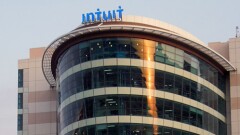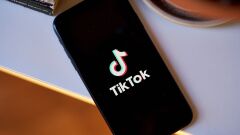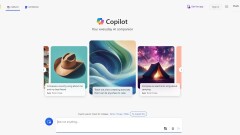A study found that potential productivity gains from Microsoft Copilot were cancelled out by extra verification procedures, plus Intuit added on-demand pay to QuickBooks Payroll, and your next employee may come from TikTok, plus seven other developments in technology this past month and how they'll impact your clients and your firm.
1. Study: No evidence of productivity gains from Copilot

Why this is important for your firm and clients: This is not only unsurprising, but not a big concern. It makes sense. Whatever time people are spending using AI is offset by them actually verifying what AI did because no one yet trusts AI. And for good reason. But this will change over the next few years, and like all major technologies from the airplane to the telephone, people and businesses will soon not only trust the results of their AI applications but lean on them more to perform important tasks. That's when productivity will not only explode, but many jobs will be lost.
2. Intuit and Clair partner for on-demand pay

Why this is important for your firm and your clients: Earned waged access — some call it same-day pay — has been exploding in popularity over the past few years and I can understand why. Some surveys say that anywhere from 40-60% of hourly workers are living paycheck to paycheck. This option gives them the ability to smooth out their finances. Because these applications are installed at no cost to the employer and no change in their payroll financing (the makers usually earn their money from a percentage of the debit card merchant fee), it's a no-brainer employer incentive to add that can not only attract but retain good workers.
3. Google Chrome gets 10 new AI features

Why this is important for your firm and clients: Slowly but surely, AI features that will increase both your and your team's productivity keep rolling out. Like so many other "features" that software companies release, many of these may fly under the radar, yet taking the time to learn (or be trained on them) can have a big impact on the way your company works.
4. Copilot users get new AI agent for Teams

Why this is important for your firm and clients: Same as above. Many of my clients use Teams, yet few truly take advantage of all its capabilities. These new features offer significant ways to increase productivity.
5. Employers bet on TikTok for hiring

Why this is important for your small business: Now that TikTok appears to have a continued future here in the U.S., it's worth the time for smaller employers to seriously consider using this platform as a recruiting tool, given that the platform's demographic skews younger.
6. Microsoft will force install Copilot AI app

Why this is important for your firm and clients: Don't be surprised when this forced install happens. And if any of your users are running personal versions of Windows they're not going to have any choice. According to the article Microsoft is heavily investing in AI and looking to increase adoption rates, but critics argue this move may feel like forced bloatware for users who don't want or use AI tools.
7. Google's new protocol lets AI agents complete purchases

Why this is important for your firm and clients: What's changed? According to the article, current AI agents can browse and compare products but can't finalize transactions without manual user input. AP2 introduces a secure, standardized way for agents to authenticate user intent, validate transactions, and ensure accountability if something goes wrong. This won't be happen overnight, but already big tech is setting the stage for agents to take over a company's payment processing which — once we become comfortable with that process — can free up the time (and lower overhead cost) related to the people who are currently performing this function.
8. YouTube announces a range of updates

Why this is important for your firm and clients: My company does a lot of YouTube promotion for our videos and I've already forwarded this news to the person running my campaigns.
9. How people are using ChatGPT

Why this is important for your firm and clients: OpenAI categorized usage into three main types: Asking (49%): Seeking advice, information, or guidance — ChatGPT as a smart advisor. Doing (40%): Task completion like writing, planning, or coding — especially for work. Expressing (11%): Personal reflection, creativity, and play. If you're adopting chatbots like ChatGPT into your business you should be leaning into this functionality for the best results.
10. OpenAI rolls out ChatGPT Projects to free users

Why this is important for your firm and clients: I use ChatGPT Projects regularly with mixed results. Sometimes the interface is confusing. But most of the time it serves as a good place to keep all communications, chats, notes, etc. in one place for a team to share. Now that it's being made available at no charge for some users, I expect to see its usage grow. If your firm or clients are using ChatGPT, this is a good time for your teams to test out the use of Projects and whether or not it's right for your culture.





